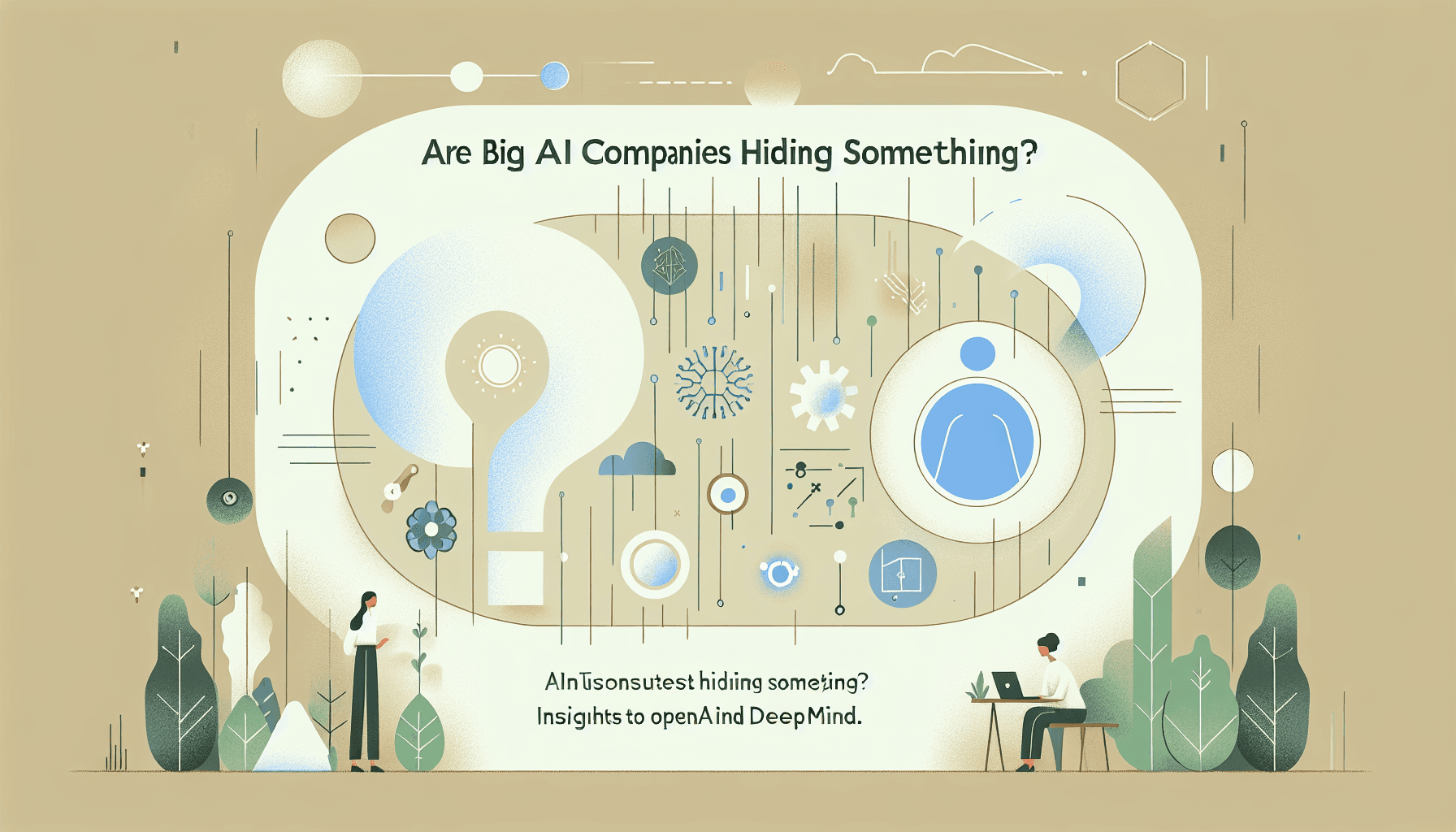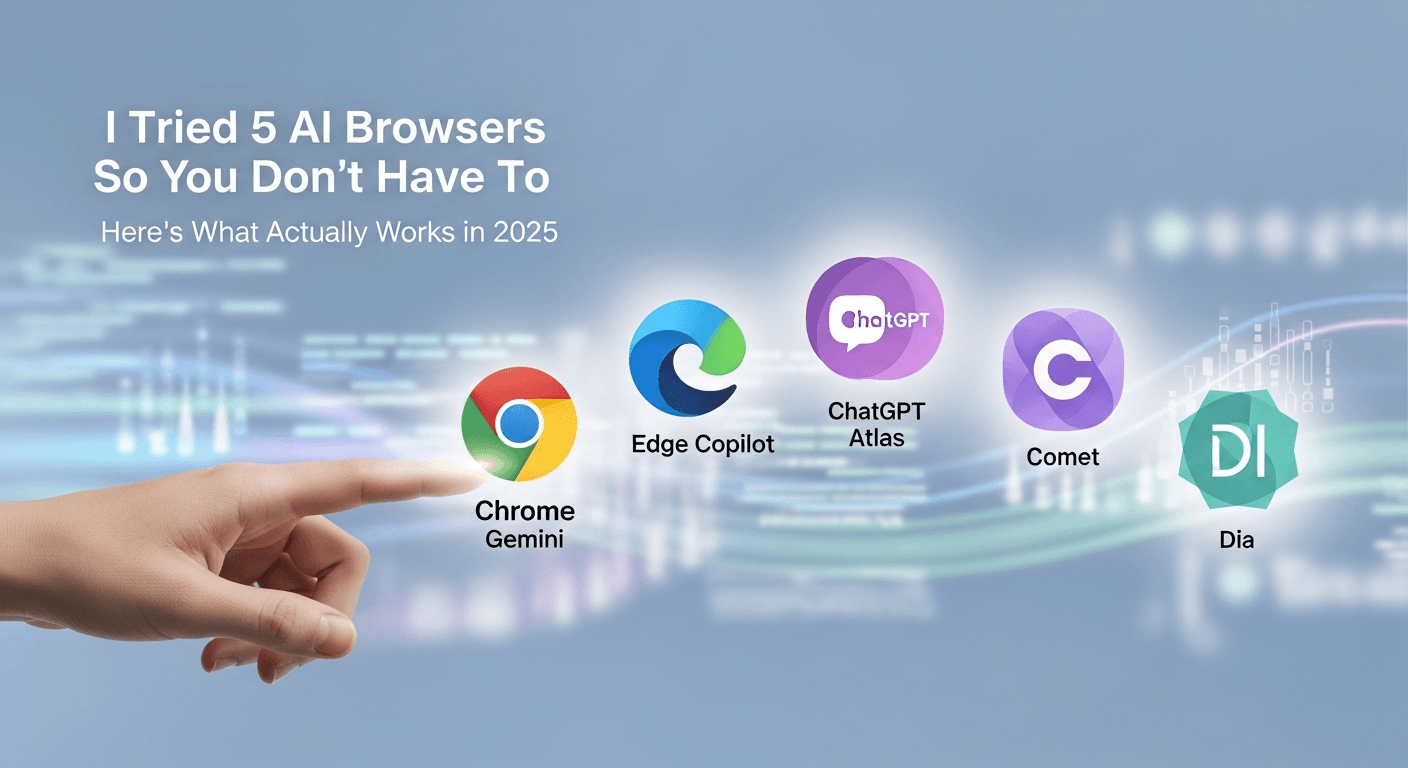
Are Big AI Companies Hiding Something? Insights into OpenAI and DeepMind
Introduction
In the rapidly evolving world of artificial intelligence, companies like OpenAI and Google DeepMind are at the forefront of innovation. However, recent concerns have surfaced about whether these tech giants might be withholding information about the potential dangers of AI from the public. In this article, we’ll explore what’s behind these claims and what it means for the future of AI.
What’s the Concern?
Reports have emerged that employees from OpenAI and Google DeepMind, two of the most influential AI companies, believe that these organizations might not be fully disclosing the potential risks associated with their AI technologies. This has raised questions about transparency and ethical responsibilities within the AI industry.
Breaking Down the Claims
According to Time Magazine, employees feel that certain aspects of AI development are being kept from the public eye due to fears of backlash or competitive disadvantage. These include risks related to privacy, security, and even the ethical implications of advanced AI systems.
The Companies’ Response
OpenAI and Google DeepMind have stated their commitment to transparency and responsibility in AI. They emphasize ongoing research into AI ethics and safety and argue that responsible disclosure is key to managing AI risks. Both companies are involved in various collaborations and initiatives aimed at promoting safe AI development.
The Importance of Transparency
Transparency in AI is crucial for several reasons:
- Trust Building: Openness helps in building public trust, which is essential for the adoption of emerging technologies.
- Ethical Standards: Providing clear information about AI capabilities and limitations helps set ethical standards and regulations.
- Preventing Misuse: Awareness of potential risks enables developers and policymakers to implement strategies to prevent misuse.
What Does This Mean for AI’s Future?
As AI continues to evolve, so do the discussions around its impacts and ethical considerations. Companies must balance innovation with transparency and responsibility to ensure AI’s benefits are maximized, and its risks are minimized. This situation highlights the need for robust frameworks to guide responsible AI development and deployment.
Conclusion
The debate surrounding AI transparency isn’t just about technology—it’s about trust and responsibility. OpenAI and Google DeepMind, as industry leaders, have significant roles to play in shaping the future of AI in a way that serves society positively. As we move forward, keeping a watchful eye on both the possibilities and perils of AI is essential.
FAQs
- What are the main concerns about AI transparency?
The main concerns revolve around potential risks related to privacy, security, and ethical implications, which some feel are not being fully communicated to the public. - How are OpenAI and DeepMind addressing these concerns?
Both companies claim to uphold transparency through ethical research and collaborations aimed at safe AI development. - Why is transparency important in AI development?
Transparency builds trust, sets ethical standards, and helps prevent the misuse of AI technologies. - How can AI companies balance innovation and transparency?
By creating comprehensive frameworks that promote responsible development while effectively communicating potential risks and benefits. - What role does the public play in AI transparency?
The public needs to remain informed and engaged, holding companies accountable for ethical practices in AI development and deployment.
Sources
Thank You for Reading this Blog and See You Soon! 🙏 👋
Let's connect 🚀
Latest Insights
Deep dives into AI, Engineering, and the Future of Tech.

I Tried 5 AI Browsers So You Don’t Have To: Here’s What Actually Works in 2025
I explored 5 AI browsers—Chrome Gemini, Edge Copilot, ChatGPT Atlas, Comet, and Dia—to find out what works. Here are insights, advantages, and safety recommendations.
Read Article


